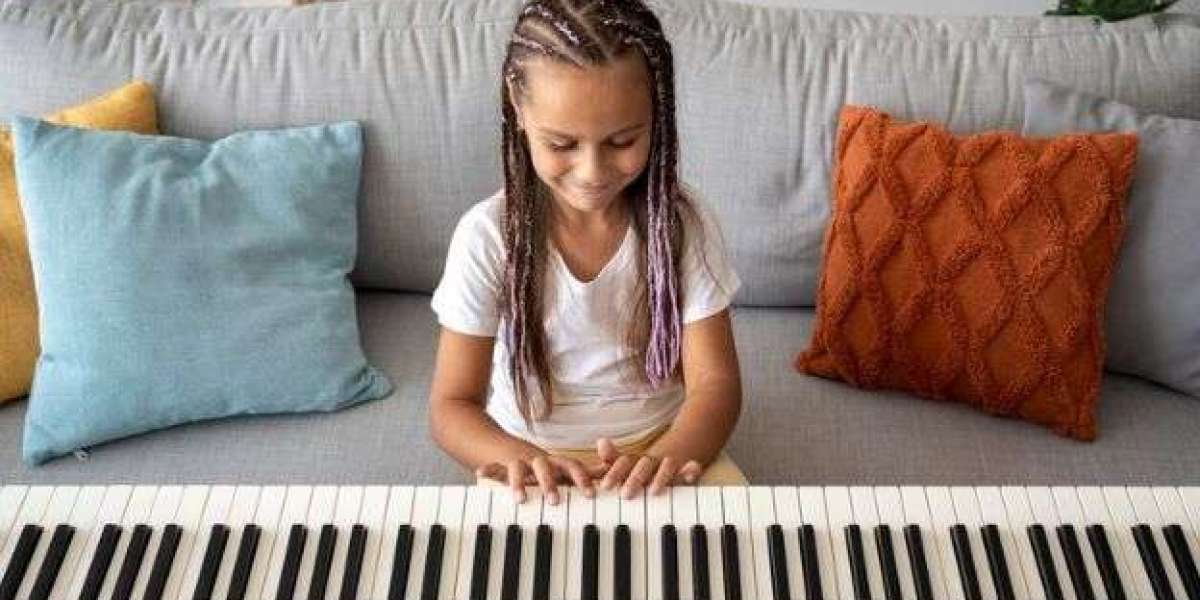Choosing the Right Age to Start
While there’s no one-size-fits-all answer, most kids are ready to begin piano lessons between the ages of 5 and 7. At this age, children typically have the finger strength, motor skills, and attention span to handle lessons. That said, younger kids can also benefit from exposure to music, even if it’s through informal play and exploration of the piano.
Finding the Right Teacher
A good teacher can make all the difference in your child’s experience. Look for someone who is patient, encouraging, and skilled at working with kids. It’s helpful if the teacher incorporates fun activities into the lessons to keep your child engaged. Ask for recommendations from friends, read reviews, or visit local music schools to find the right fit. Don’t be afraid to schedule a trial lesson to see how your child connects with the teacher.
Setting Up a Practice Routine
Consistent practice is key to progress. Start with short, daily sessions—10 to 15 minutes is plenty for beginners. As your child’s skills grow, you can gradually increase practice time. Make practice a part of their routine, just like brushing their teeth or doing homework. Encouraging a positive attitude toward practice is crucial, so celebrate small achievements and keep the mood light and fun.
Creating the Right Environment
Having a dedicated space for practice can make a big difference. Choose a quiet, distraction-free area with a well-maintained piano or keyboard. If you’re using a keyboard, make sure it has weighted keys and a pedal to mimic the feel of an acoustic piano. Proper posture is also important, so invest in an adjustable bench to ensure your child is comfortable.
Choosing the Right Instrument
If you don’t already own a piano, a good-quality keyboard is a great starting point. Look for one with 88 weighted keys to provide the full range of a traditional piano. This allows your child to learn proper technique and transition easily to an acoustic piano later on. If you’re ready to invest in an acoustic piano, consider starting with a used model in good condition to save on costs.
Balancing Fun and Discipline
Kids learn best when they’re enjoying themselves, so it’s essential to strike a balance between structured learning and playful exploration. Incorporate games, songs your child loves, and creative improvisation into practice sessions. At the same time, encourage discipline by helping them stick to their practice routine and setting realistic goals.
Supporting Your Child’s Progress
As a parent, your support plays a huge role in your child’s success. Show interest in what they’re learning and attend their recitals or informal performances. Even if you’re not musically inclined, you can cheer them on, help them stay organized, and remind them of their progress when they face challenges.
Overcoming Common Challenges
It’s normal for kids to hit roadblocks, whether it’s losing motivation or struggling with a tricky piece. When this happens, avoid putting too much pressure on them. Instead, talk to their teacher for advice, introduce new songs or activities, or take a short break to prevent burnout. Remember, the goal is to foster a lifelong love of music, not to rush through milestones.
Celebrating Milestones
From mastering their first song to performing in their first recital, celebrate your child’s accomplishments along the way. These moments build their confidence and make the learning process more meaningful. Encourage them to set personal goals and celebrate every step they take toward achieving them.
Conclusion
Piano lessons for kids are about more than just learning to play an instrument; they’re an opportunity to develop important life skills and create lasting memories. By finding the right teacher, establishing good habits, and fostering a positive environment, you can set your child up for success. Remember, the journey should be enjoyable and enriching, both for your child and for you as a proud parent.








